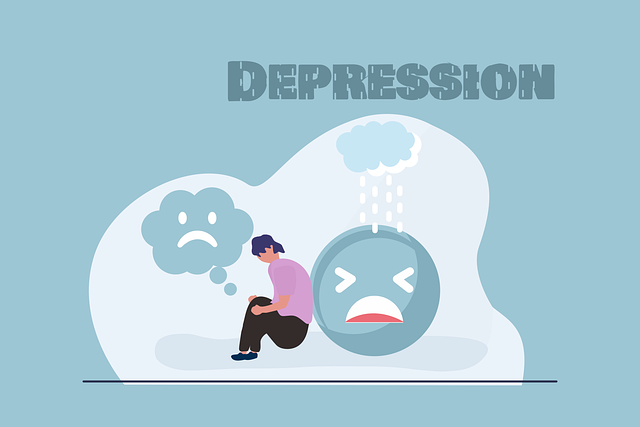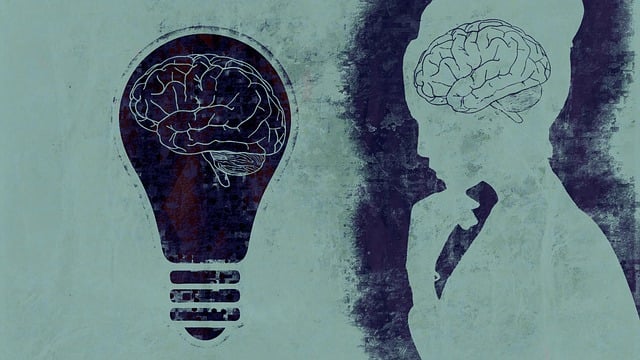Stress significantly impacts young children's emotional and cognitive development, stemming from everyday pressures or traumatic events. Effective therapy for young children focuses on building self-esteem through stress management techniques, such as play therapy, cognitive behavioral therapy (CBT), and mindfulness exercises. Early intervention using these methods fosters resilience, enhances emotional intelligence, and prevents future mental health disorders. Self-esteem development is crucial for navigating life's challenges, making it a key component of therapy for young children, alongside mental health policy analysis to advocate for better support systems.
Stress management techniques teaching are crucial for young children’s holistic development. This article delves into understanding the causes and effects of stress in kids, highlighting the critical role of self-esteem in their coping mechanisms. We explore effective therapy approaches tailored for young minds, offering practical strategies to build resilience. By equipping children with stress management skills early on, we foster long-term mental well-being and enhance their overall quality of life, particularly when incorporating therapy for young children and focusing on self-esteem.
- Understanding Young Children's Stress: Causes and Effects
- The Role of Self-Esteem in Stress Management for Kids
- Effective Therapy Approaches for Teaching Stress Management
- Practical Strategies to Build Resilience in Children
- Long-term Benefits of Early Stress Management Education
Understanding Young Children's Stress: Causes and Effects

Young children, despite their small stature, are not immune to stress. Their developing brains and limited coping mechanisms make them particularly vulnerable to its effects. Understanding what causes stress in young lives is essential for implementing effective therapy for young children. Stressors can range from everyday challenges like academic pressure or social interactions to more significant issues such as family conflicts or trauma. These experiences can trigger a cascade of physiological responses, impacting their emotional and cognitive development.
The consequences of chronic stress in childhood can be far-reaching, affecting not just their present but also shaping future mental health outcomes. Research suggests that prolonged exposure to stress may hinder brain development, leading to difficulties in self-regulation, learning, and memory. It can also manifest as behavioral issues, low self-esteem, and even contribute to the development of mental health disorders later in life. Thus, fostering positive thinking and implementing risk management planning becomes crucial for mental health professionals, with an ultimate goal of advocating for comprehensive mental health policy analysis.
The Role of Self-Esteem in Stress Management for Kids

Building self-esteem is a powerful tool for teaching kids effective stress management techniques. Young children with high self-worth are more likely to approach challenges with confidence, perceive stressful situations as manageable, and recover faster from setbacks. Therapists can foster self-esteem in therapy sessions by acknowledging children’s strengths, encouraging their efforts, and celebrating achievements, regardless of size. This creates a safe space for kids to explore their emotions and develop resilience.
Cultural sensitivity in mental healthcare practice is essential when addressing self-esteem issues, as children from diverse backgrounds may have unique experiences and perceptions of stress. Community outreach program implementation can help connect families with resources tailored to their cultural needs. By integrating mind over matter principles, such as reframing negative thoughts and practicing mindfulness, therapists empower young clients to take charge of their emotional well-being.
Effective Therapy Approaches for Teaching Stress Management

Teaching stress management to young children is a delicate process that requires tailored therapeutic approaches. One effective method is play therapy, which uses games and imaginative play to help kids express their emotions and learn coping skills development. Through this, children can develop better self-esteem and enhance their ability to handle stressful situations.
Cognitive behavioral therapy (CBT) is another powerful tool, focusing on identifying negative thought patterns and replacing them with positive, realistic ones. This helps young individuals understand the mind over matter principles at play in stress management. Additionally, communication strategies are integral to these therapies, empowering children to articulate their feelings effectively and foster healthier relationships.
Practical Strategies to Build Resilience in Children

Teaching children practical stress management techniques is an effective way to build resilience and foster a positive mental health foundation. Early intervention through therapy for young children can significantly impact their ability to navigate life’s challenges. One powerful tool is helping them develop self-esteem, which acts as a buffer against stress and potential depression prevention. By encouraging self-awareness and empowering kids to express their emotions, therapists can equip them with essential coping skills.
Empathy building strategies are also vital; teaching children to recognize and understand their feelings, as well as those of others, promotes emotional intelligence. This fosters better mood management skills and strengthens relationships, which are key factors in resilience-building. Simple yet effective activities like mindful breathing exercises or creative outlets can go a long way in helping kids develop healthy stress responses, ensuring they approach life’s hurdles with confidence and composure.
Long-term Benefits of Early Stress Management Education

Early education on stress management can have profound long-term benefits for young children. By teaching them effective coping strategies at a tender age, we empower them to navigate life’s challenges with resilience and self-esteem. This early intervention sets the foundation for better mental health outcomes as they grow up, potentially reducing the risk of developing anxiety or other mental illnesses later in life.
Stress management techniques, such as conflict resolution skills and mindfulness practices, can help children build a healthy psychological toolkit. These tools not only foster their ability to handle stressful situations but also contribute to overall well-being. In today’s fast-paced world, where mental illness stigma reduction efforts are gaining momentum, equipping young minds with stress management knowledge is more crucial than ever. This proactive approach can significantly impact the lives of children, ensuring they have the resources to thrive in a complex and demanding environment.
Teaching stress management techniques to young children is a powerful investment in their future well-being. By understanding the unique causes and effects of stress in kids, we can empower them with tools that enhance self-esteem and foster resilience. Through effective therapy approaches and practical strategies, parents and educators can navigate this crucial aspect of child development. Early education in stress management offers long-term benefits, enabling children to lead happier, healthier lives as they grow into adulthood.








